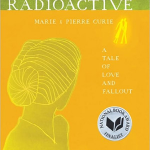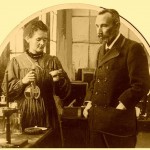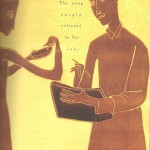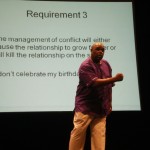Relationships really confuse us. On one hand we say we want a real, intimate, relationship. On the other hand, we know that relationships are hard.
   I see this tension in my students’ struggles to have relationships. When I ask “…why are interpersonal relationships so difficult to manage,†I get a lot of responses.
- Because we disappoint other people
- Because we place expectations on people and are disappointed
- Because we interpret things differently
- Because we are ego-centric (always believe we’re right)
- Poor communication skills
- Situations change (i.e. moving to a new location)
- People have different beliefs
- Because we try to please everyone
- Money
- Because we’re never satisfied
- Because we have difference experiences/backgrounds
- People are selfish (i.e. want instant gratification)
- Interpersonal relationships are too time-consuming
- People lie
- Imbalance in affection
- New/different social influences
- Because we’re scared to be vulnerable
- Because we have a tendency to be judgmental
- Because we have different desires and goals
- Because of the different investments placed towards the relationship
- Lack of respect for personal space
- Different styles of managing stuff
- Trying to fit in too much
- Immaturity/inexperience in relationships
- Different interests
- Sexual incompatibility
- Because your relationship with Person A can affect your relationship with Person B (i.e. your girlfriend doesn’t like your best friend)
- Jealousy
- Because we aren’t mindful of others
- People are stubborn
- Because the more we get to know people, the more flaws we observe
- People are sensitive
- Because we’re not the same and that might cause difficulty
- Because we attribute people’s behavior to who they are, not the influences which might have contributed to their development (i.e. blame others)
- Don’t let go (i.e. hold grudges)
- People have different orientations
- Alcohol
- Because we have images of perfection
- People aren’t faithful
- Stereotypes are placed until broken
- Power struggles
- Inability to empathize
- We all do wrong and we know it
   In the Fall of 2011, from a class of 207 students, those were the responses I got to my query, “Why are interpersonal relationships so difficult to manage?â€Â And when that last response came, “We all do wrong and we know it,†I stopped and looked up into the auditorium.Â
    I wanted to look in to the eyes of the person who said that; who admitted that. He was a young white man with floppy dirty-blonde hair, and a look about him of being separate from others. I looked up into his eyes, nodded to him, and again repeated it for the class…
    “We all do wrong and we know it.â€
    Even listing all these facts that make interpersonal relationships difficult to develop and maintain, my students also seem to want to believe that relationships shouldn’t be this hard. And therein lay the problem.
    Look, relationships are hard not just in our imaginations, but because all relationships involve two people with two different social histories; two reasonable sets of opinions; two reasonable sets of preferences.
    That’s why people say, “…relationships are hard.â€Â That’s why we find ourselves saying things like:
    “God he gets on my nerves.â€
    “I don’t know why she just won’t do it the way I told her to do it. Humph…â€
      Langston Hughes, the poet, describes one part of the struggle of relationships, saying,
           “Late last night I
            Set on my steps and cried.
            Wasn’t nobody gone,
            Neither had nobody died.
            I was cryin’
          Cause you broke my heart in two.
           You looked at me cross-eyed
           And broke my heart in two—
          So I was cryin’
           On account of
           You!â€
    Being in a relationship, being interdependent with another person is not easy. It’s not just a matter of what we or they think. Interdependence is about concrete social connections, social ties, that influence our behavior and our friends’, co-workers, lovers’, teammates’, parents’, behaviors.
    When we take that for granted by assuming that the other person can just think their behavior into shape for us, we deceive ourselves and belittle those with whom we are interdependent. Yet, people sometimes fear the scientific truth. They fear it not simply because they will find out they are wrong, but more because they fear that it will take away the magic. But knowing the truth does not take away the power of the magical and inspirational. Fully understanding the real nature of relationships will not make our social lives more mechanical, but will give us an appreciation of the struggle and make what we achieve feel even more magical and inspirational.Â
    When the research knowledge developed by social psychologists is brought together with a focus on interdependence, it can provide us with tools that will help us all in our relationship struggles. Knowing the obstacles, barriers and challenges that relationships face can only help us appreciate the joy and pain of the struggle to create and maintain those relationships. Â
    Being in relationships is what activates, heats up all of our human experiences. That’s why when I teach about relationships, I always begin with the hard truth of interdependence between two people. I do that so that we can explore and try to understand how human experience operates within and emerges from our interpersonal interactions, so we can know what we are up against, and what joy we can really achieve through the struggle.









